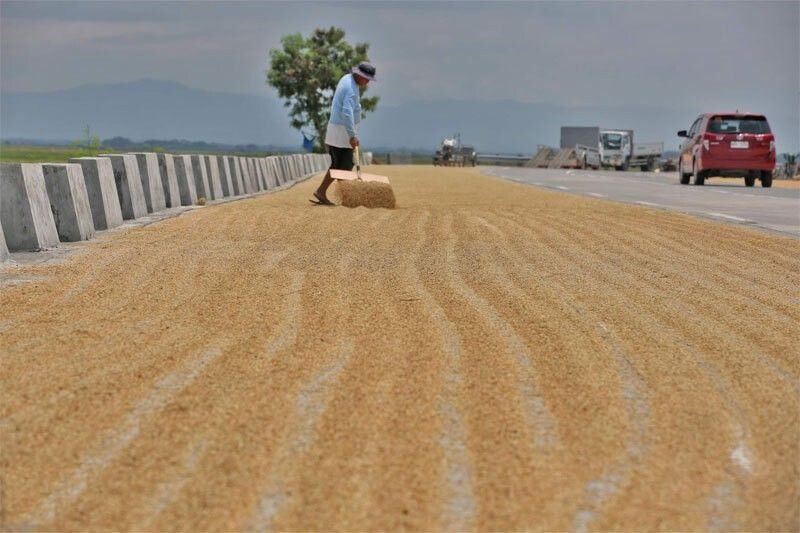MANILA, Philippines — European businesses are looking to invest in the country’s agriculture sector, particularly to shore up innovation and sustainable practices.
The Department of Agriculture (DA) discussed with representatives of the European Union-ASEAN Business Council (EU-ABC) and the European Chamber of Commerce of the Philippines (ECCP) mutual interests in agricultural development, foreign trade and investments, economic growth and other potential areas of cooperation.
“European businesses are at the forefront of innovation and sustainable practices in agriculture, and today we stand ready to share these best practices and expertise to support the continued growth and advancement of the agriculture sector in the Philippines,” EU-ABC vice chairman Tassilo Brinzer said.
By leveraging Europe’s expertise in agribusiness management, sustainable farming techniques and market access, he said EU-ABC hopes to uplift the livelihoods of Filipino farmers and contribute to poverty reduction in rural areas.
ECCP executive director Florian Gotten cited the Philippines’ growth and potential as a result of this administration’s roadshow to invite investors to come to the country.
“The Philippines is now on the map and I think that this is a new era, a golden age for investments into the Philippines. We are very much optimistic that we will see more European companies coming here, supporting your efforts, and maybe reckon trying to work with you to bring the agriculture in this country to the next level,” Gotten said.
For his part, Agriculture Senior Undersecretary Domingo Panganiban thanked the European delegation’s interest in collaborating with the Philippine government for the advancement of the latter’s agri-fishery sector, which he said will benefit not only the Philippines but also other countries.
“Increased cooperation and foreign investments spell more jobs, higher incomes, better access to basic commodities, less inflation, and collaboration and partnership over confrontation. The more unbounded the flow of both, the stronger the momentum for economic prosperity and peace among nations,” Panganiban said.
During the meeting, the DA highlighted the need to address the concerns in the sugar sector, including supply and high prices.
Sugar Regulatory Administration (SRA) administrator Pablo Luis Azcona said the country currently has about 390,000 hectares of sugarcane plantations, 90 percent of which are owned by small-scale farmers, and over five million Filipinos dependent on the sugarcane industry.
Azcona said the SRA plans to increase the industry’s productivity and profitability through the adaptation of climate-resilient agricultural practices, the promotion of drought- and wet season-resistant sugarcane varieties, and the upgrading of select mills in Luzon.
The agency, Azcona said, also intends to consolidate farms into 30-hectare plots as well as mechanize and modernize plantations in the country.
The SRA projects raw sugar production to reach 1.78 million metric tons, lower than the 1.82-million MT raw sugar produced in the previous crop year.
Based on the DA’s monitoring in Metro Manila markets, refined sugar prices range between P86 and P110 per kilo, washed sugar from P82 to P90 per kilo, and brown sugar from P78 to P90 as of yesterday.
The agriculture department also highlighted at the meeting various efforts toward food security, which include promoting opportunities in agriculture among the Filipino youth through the Young Farmers Challenge, reviewing its key commodity investment plans through the Philippine Rural Development Project (PRDP), promoting accessible and affordable healthcare for local agricultural laborers and their families, and improving local food production and competitiveness while also opening the country’s doors to collaborative activities with the EU and other foreign partners.
With the World Risk Index 2022 ranking the Philippines as the number one country with the highest disaster risk worldwide, the DA also stressed the importance of immediately mitigating and addressing the impacts of climate change to the Philippine agri-fishery sector.
Some of the measures being implemented by the DA include allotting P1 billion for its Quick Response Fund, attending fora and other engagements related to climate change, working with every stakeholder towards climate and disaster resiliency, developing climate-resilient crop varieties, advocating for eco-friendly agricultural practices, and just recently, preparing for the El Niño in the third or fourth quarter of the year.
Source : Philstar

